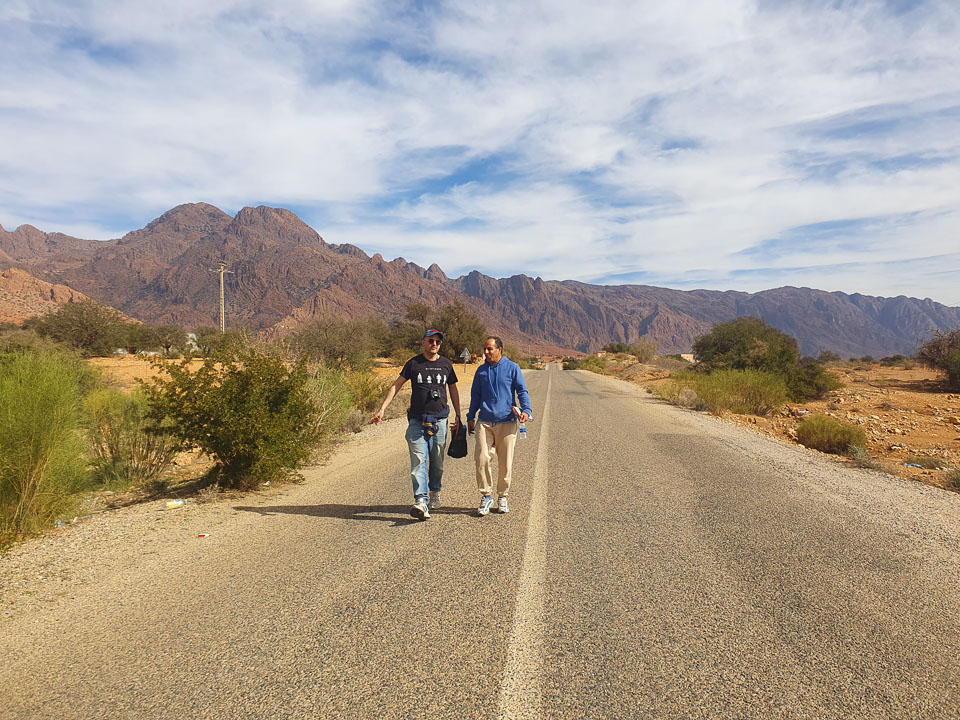Not the last straw
It's often so much better to say something than say nothing. Ski holidays - and life - can be made better that way.
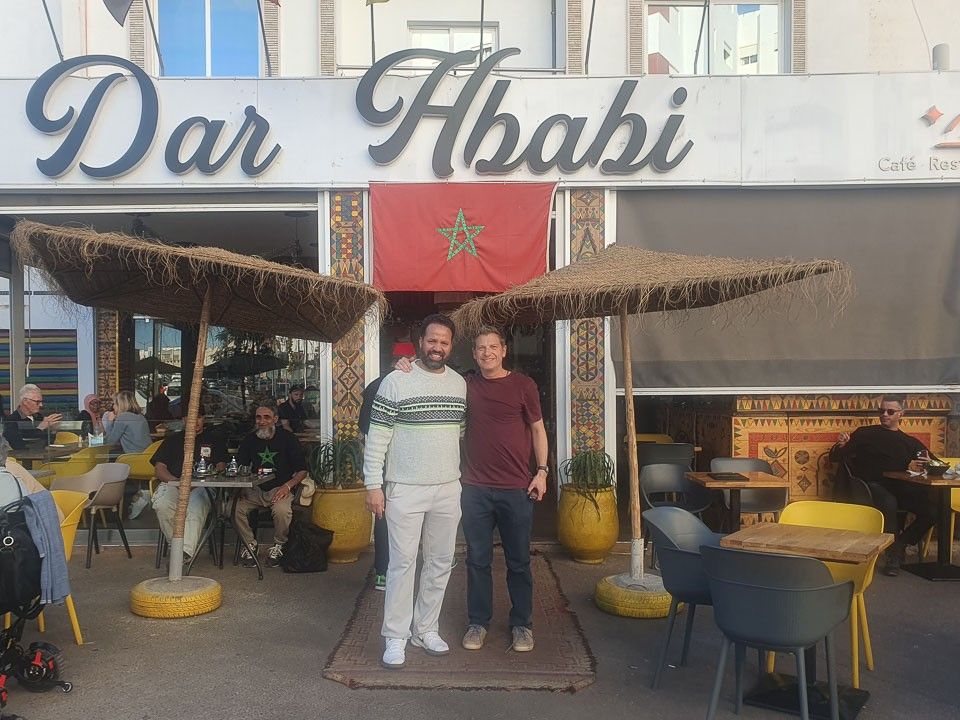
Say something, or say nothing: that's often the dilemma.
Have you been on a holiday - perhaps a ski holiday - and found something that you thought could be better for everyone, if done differently? Maybe something in your hotel or chalet was annoying or wasteful, but you said nothing about it the whole week.
Often, speaking out about something can feel difficult. How to raise it? What to say? To whom? and Will it even make a difference?
But I believe that speaking out about stuff is really important. If you've spotted something you think could be done better in a different way, then saying something is a service to everyone.
Last week, five of us were in a café in Agadir, a coastal city in Morocco. We were en route to the desert. No snow—just rocks, sand and sunshine. We ordered some drinks. But when they came, all the cold drinks came with plastic straws already in the drink. Even the cans of Sprite and Coke arrived at the table with a plastic straw wedged tightly into the unopened ring pull. I’d never seen such enthusiasm for plastic straws at a café.
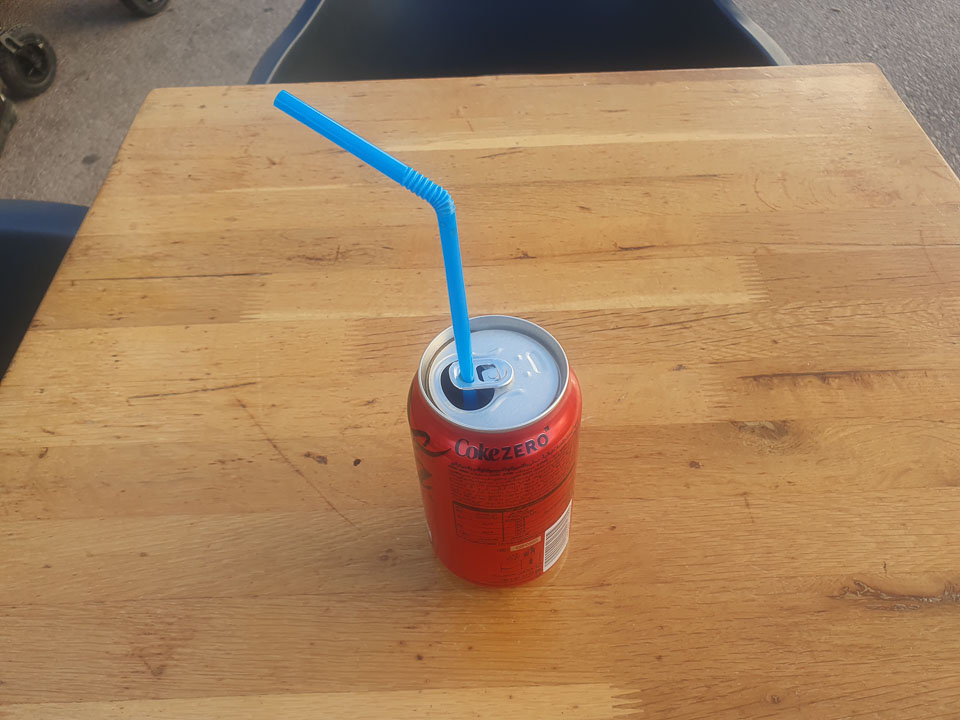
Now, plastic straws can be fun. There's a game where you run as far as you can, keeping a dried pea on the end of a straw using the power of suction. Such is the combination of skills required for this, it should be an Olympic sport.
For some people, straws make drinking easier. Fortunately, non-plastic versions now exist, although I only came across plastic ones in Morocco.
Most of the time, however, a plastic straw is an unnecessary middle man between your mouth and the drink. It’s only there because a company that produces straws wants to sell them and the café assumes you want one.
On your table alone, it’s a few straws — not the biggest deal. But this is happening at every table, every day, in hundreds, if not thousands of cafés. These straws will gradually find their way into the environment and join the mountain of disposable plastic that ends up in the sea, contaminating landfill or disintegrating into microplastics. These microplastics refuse to break down and just cause problems wherever they end up—including in humans, where they are increasingly found.
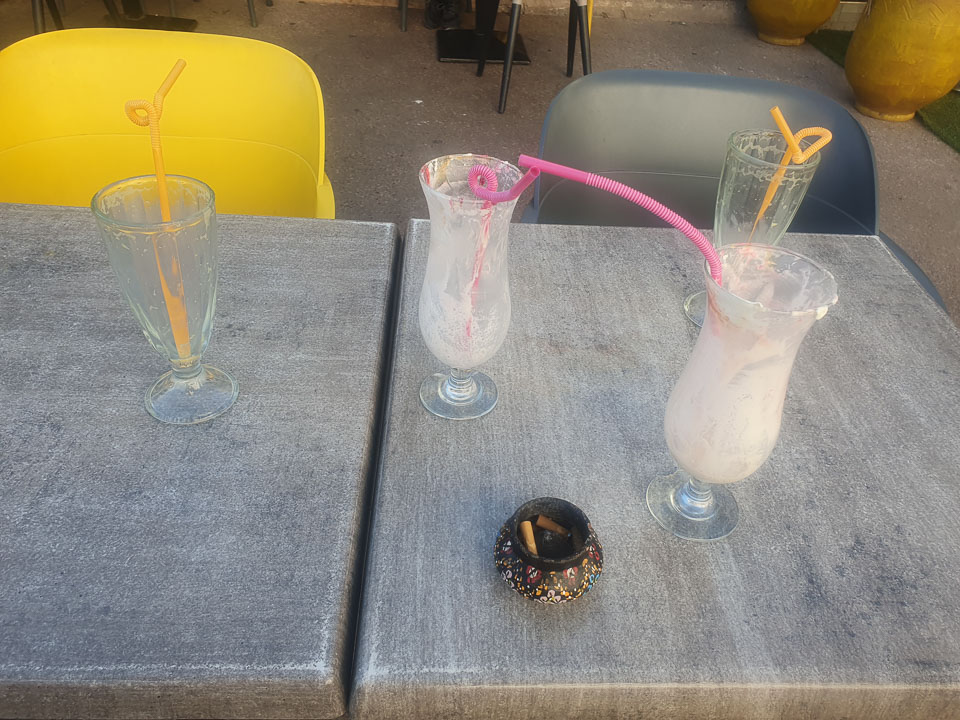
And this happens because the café assumes that you want a plastic straw.
Assumptions like this are everywhere. Hotels put 100 pillows on your bed because it looks nice. You use two. Then at the end of your stay they clean them all because they don't have a system that says 'give us what you don't use'. Millions of clean pillows, rewashed every day, all over the world. What a massive waste of water, energy, and labour.
The more we can dispel wasteful assumptions, the better.
And in the café, we did.
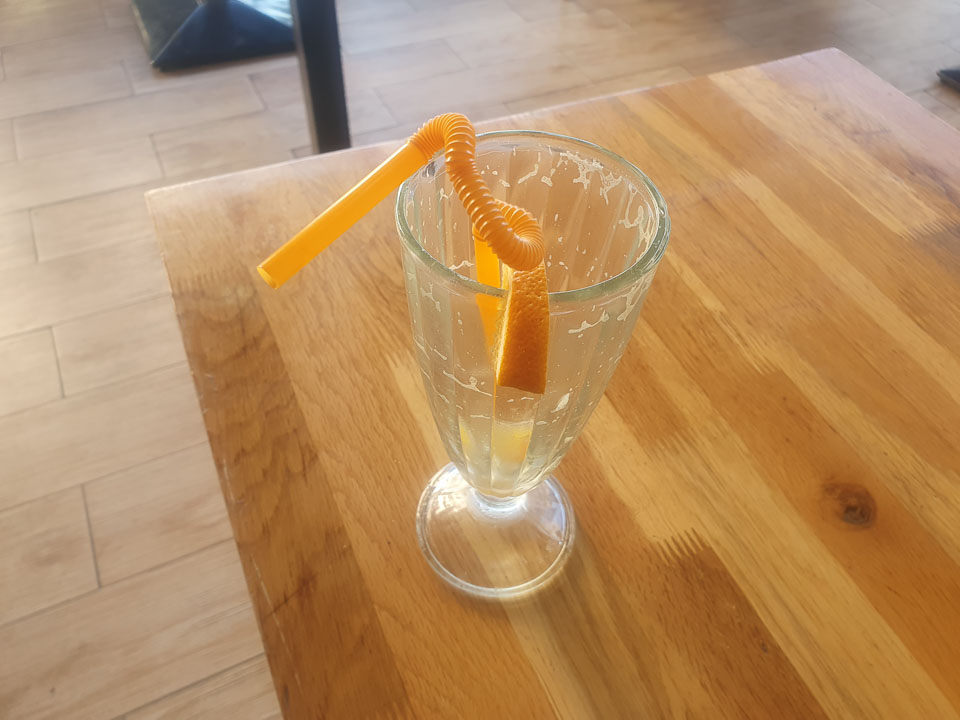
We’d already met Rashid, the café owner. He was a very welcoming, friendly character. So, I went over to Rashid and asked him if I could talk to him about the straws.
"Rashid, we love your cafe," I said. "But the thing is, when we got the drinks they already had plastic straws inserted into them. We don't want the plastic straws because they can end up in the sea, refusing to break down in the environment and that's not good. There's probably lots more people like us who don't like them. But if the drinks come with the straws already in them, then we don't have a choice and it's already too late."
Having mentioned the problem, I also suggested a possible solution:
"How about you put staws into a glass at the end of the table," I said, showing a glass full of straws that I'd already created. "Then, if people wanted a straw they could simply take one themselves."
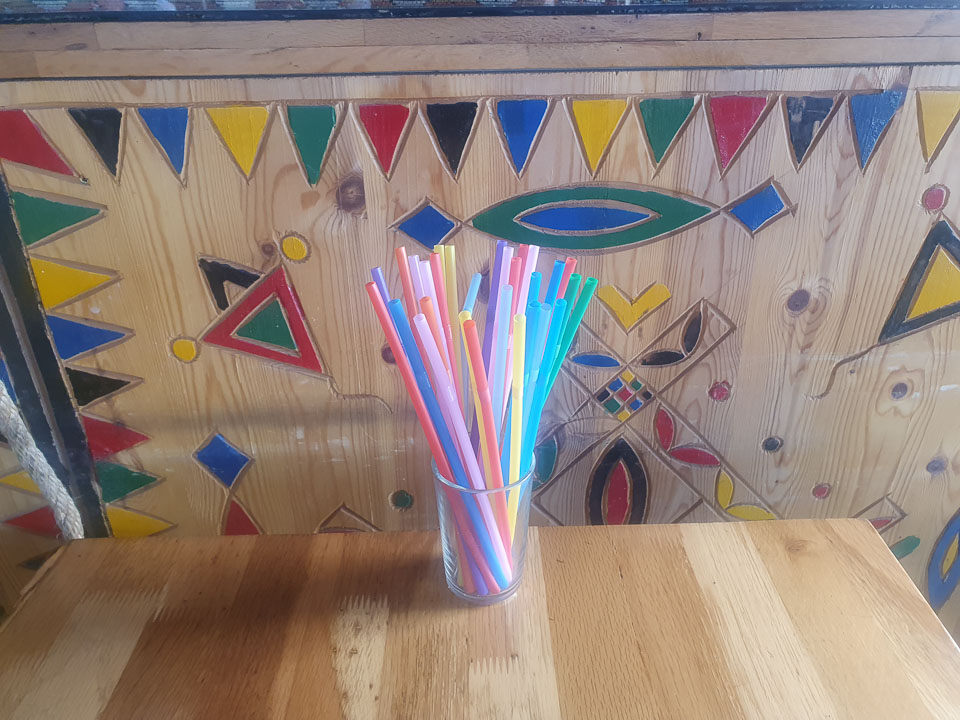
"Good idea," Rashid said. "We could try this."
I was delighted. Rashid was delighted. My friends were delighted. I said I might like to write about this happy experience and could we take a photo together (see above). Rashid said he was only too pleased.
Of course, there is no guarantee that Rashid and staff will try the suggestion (although I believe they will). But even if they didn't initially, if another customer said something then that might be enough to prompt a switch. Or it might take a third person, or a fourth. At a certain point, however, combined efforts prompt a change.
Usually, it doesn’t take that many people for the message to get through.
If the restaurant was using 200 straws a day, and by making them optional they saved 100 a day, that’s 36,500 straws saved every year. Imagine the same thing happening in 1,000 cafes of a similar size—that’s 36 million straws saved. Once upon a time, the café culture in Morocco changed from no straws to straws. It can change back.
In any situation, when a few unrelated people start asking for it, change can happen.
You don’t need to accept that the way your hotel or chalet does something is ‘just the way it is’ and won’t change. You can help change things for the better. By offering some feedback or suggestions, you are actually doing them a favour, giving them information and ideas that they can choose to act upon.
Sometimes, I’ve found, it’s as simple as asking why something is done the way it is. There may be a good reason of which you aren’t aware. But there may not. Just asking the question gets people thinking and talking.
In France a couple of years ago at a ski conference, we stayed in a hotel where the sugar cubes were individually wrapped in plastic! Dystopian. Several of us said something and the management promised to change it.
Yesterday, at a restaurant in Les Arcs, we came across these single-use disposable cartons being used for anyone that orders chips. What the actual fook? We said something. If the restaurant had people speaking about this everyday, it surely wouldn't take long for this to change.
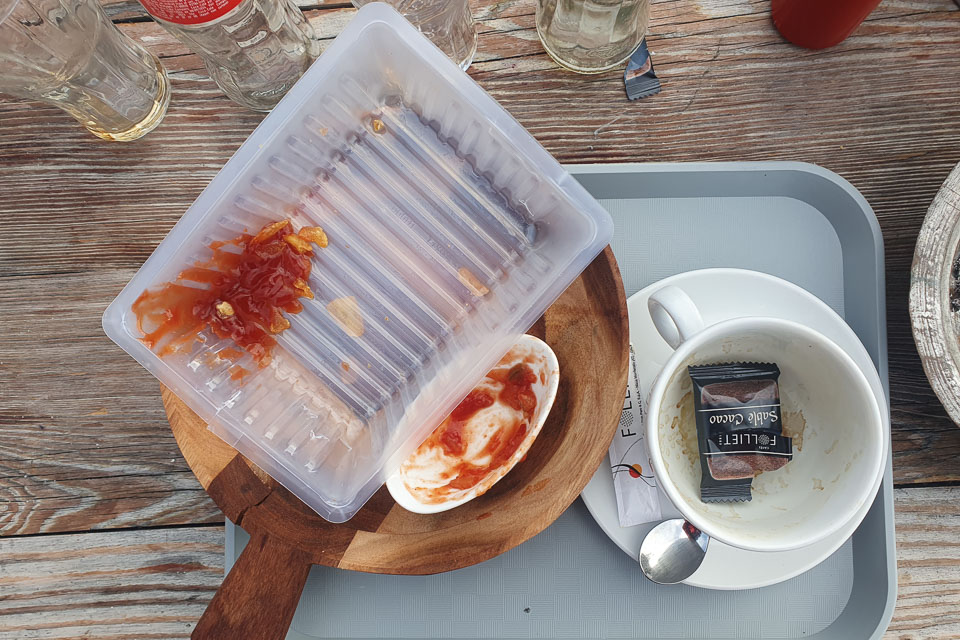
When you speak out, it feels so much better than staying silent. Instead of sitting there thinking ‘Gosh, what a waste’, you do your bit to suggest change. The result isn’t in your control, but you've done what you can. If you do so with no attachment to the result, it’s very freeing.
Two thousand years ago, a rabbi called Tarfon famously said: “You are not obliged to complete the work, but neither are you free to do nothing.”
I think it's a good way to think about these things.
